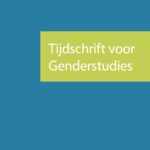 Tijdschrift voor Genderstudies (Web); Ea Høg Utoft (Nijmegen), Mante Vertelyte (Copenhagen), and Lonneke van den Berg (Den Haag)
Tijdschrift voor Genderstudies (Web); Ea Høg Utoft (Nijmegen), Mante Vertelyte (Copenhagen), and Lonneke van den Berg (Den Haag)
Porposals by: 10.08.2024
Alongside the growing share of single people globally (Kislev, 2019; Adamczyk & Trepanowski, 2023), the need for scholarly attention to singlehood as an identity, an experience, and a socio-cultural phenomenon is increasingly recognized. Historically, research has tended to take singlehood as a byproduct of coupledom, implying that single lives are viewed as empty, meaningless and marked by failure (Cobb, 2012; Lahad, 2017; Pickens & Braun, 2018). Moreover, scientific accounts of singlehood often simplistically draw associations with wellbeing and happiness, assuming that coupled individuals are better off on both variables (see critiques of these approaches, e.g. DePaulo, 2023a; Lahad, 2023). In response, leading singlehood scholar Bella DePaulo (2017, 2023a) argues that research must take singlehood as an object of study in its own right. This means that we need to approach singlehood as a process of subjectivation and, rather than uncritically reproducing assumptions and stereotypes about single people as (only) lonely and miserable, we must openly explore the multiplex configurations of singlehood and singles’ varied life experiences.
By mobilizing their activist traditions of questioning mainstream knowledge-production paradigms as well as social hegemonies and injustices, gender studies and related critical fields (such as queer studies, critical disability (or crip) studies, and critical race studies) are ideally positioned to take on the study of singlehood. These fields of study are already undertaking research on singles, with scholars from various (other) fields also engaging with feminist and other critical epistemologies in their studies of singlehood. This special issue therefore constitutes a concerted effort to bring together such fairly scattered research, with the ambition of showing, echoing Kinneret Lahad, how intersectional feminist and related epistemologies are central to advancing the field of singlehood studies. Read more … (PDF)
Source: Gender Campus
